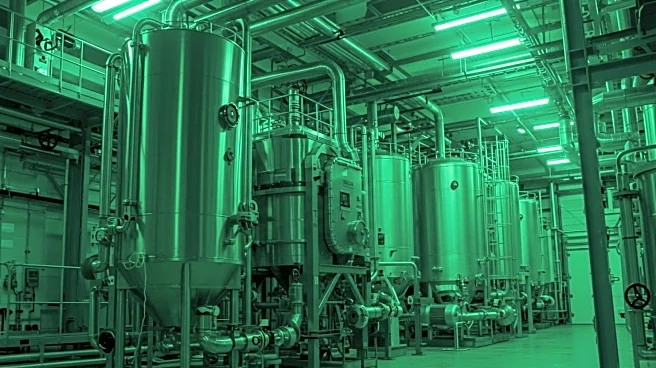What is the story about?
What's Happening?
Vioneo has selected Lummus Technology's Novolen polypropylene technology for a new plant in Antwerp, Belgium, marking the world's first industrial-scale fossil-free plastics production complex. The facility will utilize green methanol as feedstock, renewable electricity, and hydrogen, aiming to produce high-performance polypropylene grades with low emissions. The plant will have a capacity of 200KTA, using 100% segregated green propylene and ethylene to produce a range of polypropylene grades. This initiative is part of Vioneo's strategy to transition the plastics industry towards cleaner production methods, demonstrating the economic viability of large-scale green methanol-derived feedstocks.
Why It's Important?
Vioneo's collaboration with Lummus Technology represents a significant step towards sustainable plastics production, potentially setting a precedent for the industry. By utilizing green methanol and renewable resources, the facility aims to reduce carbon emissions and offer a viable alternative to fossil-based plastics. This development could influence global market trends, encouraging other companies to adopt similar technologies and practices. The initiative aligns with broader environmental goals, contributing to the reduction of Scope 3 emissions and promoting a sustainable plastics economy.
What's Next?
The success of Vioneo's facility may drive further investment in green methanol-based plastics production, encouraging innovation and collaboration within the industry. As the facility becomes operational, it could serve as a model for other companies seeking to transition to sustainable production methods. The partnership with Lummus Technology may also lead to advancements in polymer technology, enhancing the quality and performance of bio-based plastics.
Beyond the Headlines
The development of fossil-free plastics facilities highlights the ethical and cultural dimensions of sustainability, as companies balance economic interests with environmental responsibility. This initiative may contribute to long-term shifts in the industry, promoting circular solutions and reducing reliance on fossil fuels. The collaboration also underscores the importance of technological innovation in achieving sustainability goals.















